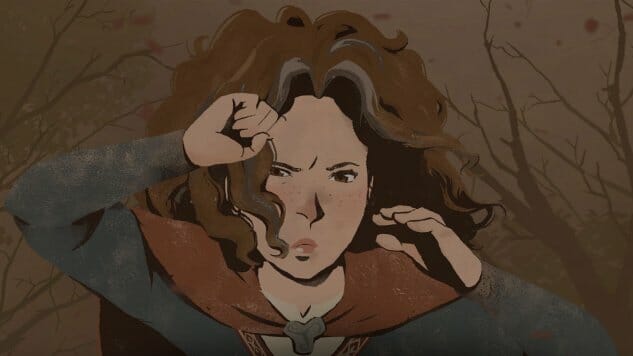Travel Is Freedom in Games and Life

When I first drove three hours down from New Jersey to Maryland to meet my partner for the first time, I had never driven outside of the state on my own before. My knowledge of roads didn’t go beyond the Turnpike. Even my own 1993 Toyota Tercel seemed eager to see some new sights. Despite my nerves to meet someone I’d met online, I felt free. No one was in the car with me, no one could change my mind or drive the car but me. It was a liberation I didn’t know I could feel while driving down 95. I felt that emotion again while playing the videogame adaption of The Pillars of the Earth by Ken Follett.
The Pillars of the Earth follows different characters who are both directly and indirectly involved in the building of a cathedral in the fictional town of Kingsbridge, England. One character the story follows is Aliena, the daughter of an Earl who was jailed for treason against the King. Aliena, along with her brother Richard, are forced to flee for their lives when they are soon considered criminals. But Aliena never spends time to wallow or doubt herself. She knows her survival is pivotal to her ability to move. Everything she lives through is because of her own two feet.
For me and many women, the ability to travel is a necessity. Fleeing from abusive relationships or dangerous areas requires the ability to find a new, safe place to stay. Sometimes we can afford the heavy cost of a plane or train ride, but for many people, those tickets are simply not viable. Because the game is set during the 11th century, Aliena is without many inventions that we have today, but it’s still impressive to see her traverse the country primarily on foot. She suffers from uncomfortable shoes, which cause her feet to bleed. She even gets a fever and almost loses her baby, but she continues to traverse on her own, because she knows moving forward is the best thing for her.